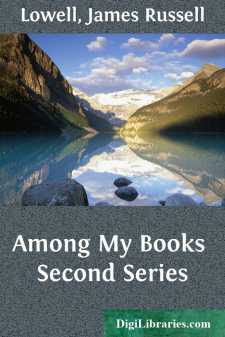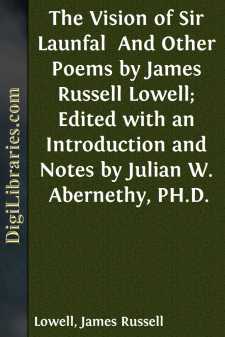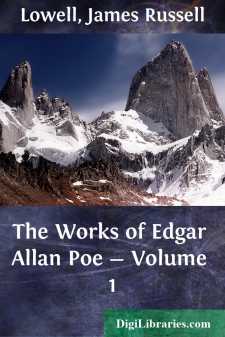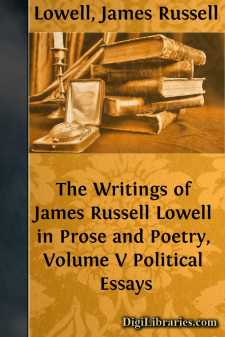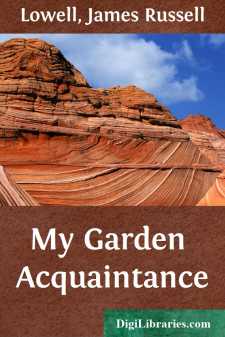Categories
- Antiques & Collectibles 13
- Architecture 36
- Art 48
- Bibles 22
- Biography & Autobiography 813
- Body, Mind & Spirit 142
- Business & Economics 28
- Children's Books 15
- Children's Fiction 12
- Computers 4
- Cooking 94
- Crafts & Hobbies 4
- Drama 346
- Education 46
- Family & Relationships 57
- Fiction 11828
- Games 19
- Gardening 17
- Health & Fitness 34
- History 1377
- House & Home 1
- Humor 147
- Juvenile Fiction 1873
- Juvenile Nonfiction 202
- Language Arts & Disciplines 88
- Law 16
- Literary Collections 686
- Literary Criticism 179
- Mathematics 13
- Medical 41
- Music 40
- Nature 179
- Non-Classifiable 1768
- Performing Arts 7
- Periodicals 1453
- Philosophy 64
- Photography 2
- Poetry 896
- Political Science 203
- Psychology 42
- Reference 154
- Religion 513
- Science 126
- Self-Help 84
- Social Science 81
- Sports & Recreation 34
- Study Aids 3
- Technology & Engineering 59
- Transportation 23
- Travel 463
- True Crime 29
James Russell Lowell
James Russell Lowell (1819-1891) was an American Romantic poet, critic, editor, and diplomat, known for his influential works in literature and his role in the anti-slavery movement. As a member of the Fireside Poets, Lowell's poetry often reflected his New England heritage and his political and social beliefs. He also served as the editor of The Atlantic Monthly and the North American Review, and held diplomatic posts in Spain and England.
Author's Books:
Sort by:
DANTE.[1] On the banks of a little river so shrunken by the suns of summer that it seems fast passing into a tradition, but swollen by the autumnal rains with an Italian suddenness of passion till the massy bridge shudders under the impatient heap of waters behind it, stands a city which, in its period of bloom not so large as Boston, may well rank next to Athens in the history which teaches come...
more...
LIFE OF LOWELL In Cambridge there are two literary shrines to which visitors are sure to find their way soon after passing the Harvard gates, "Craigie House," the home of Longfellow and "Elmwood," the home of Lowell. Though their hallowed retirement has been profaned by the encroachments of the growing city, yet in their simple dignity these fine old colonial mansions still bespeak the...
more...
THE situation of American literature is anomalous. It has no centre, or, if it have, it is like that of the sphere of Hermes. It is, divided into many systems, each revolving round its several suns, and often presenting to the rest only the faint glimmer of a milk-and-water way. Our capital city, unlike London or Paris, is not a great central heart from which life and vigor radiate to the extremities,...
more...
1858 There was no apologue more popular in the Middle Ages than that of the hermit, who, musing on the wickedness and tyranny of those whom the inscrutable wisdom of Providence had intrusted with the government of the world, fell asleep, and awoke to find himself the very monarch whose abject life and capricious violence had furnished the subject of his moralizing. Endowed with irresponsible power,...
more...
Benvenuto Cellini tells us that when, in his boyhood, he saw a salamander come out of the fire, his grandfather forthwith gave him a sound beating, that he might the better remember so unique a prodigy. Though perhaps in this case the rod had another application than the autobiographer chooses to disclose, and was intended to fix in the pupil's mind a lesson of veracity rather than of science, the...
more...
ONE of the most delightful books in my father's library was White's "Natural History of Selborne." For me it has rather gained in charm with years. I used to read it without knowing the secret of the pleasure I found in it, but as I grow older I begin to detect some of the simple expedients of this natural magic. Open the book where you will, it takes you out of doors. In our broiling...
more...


